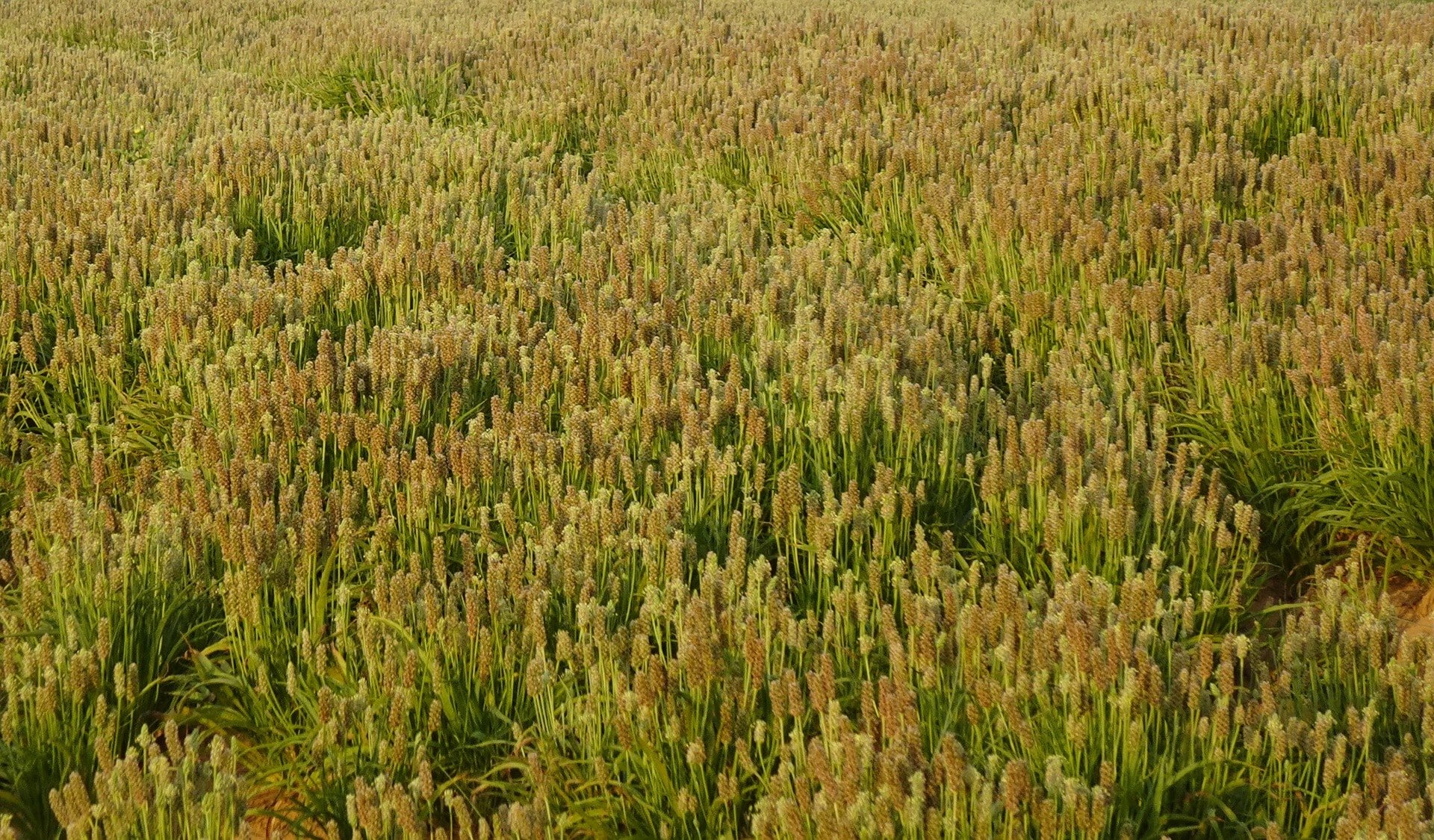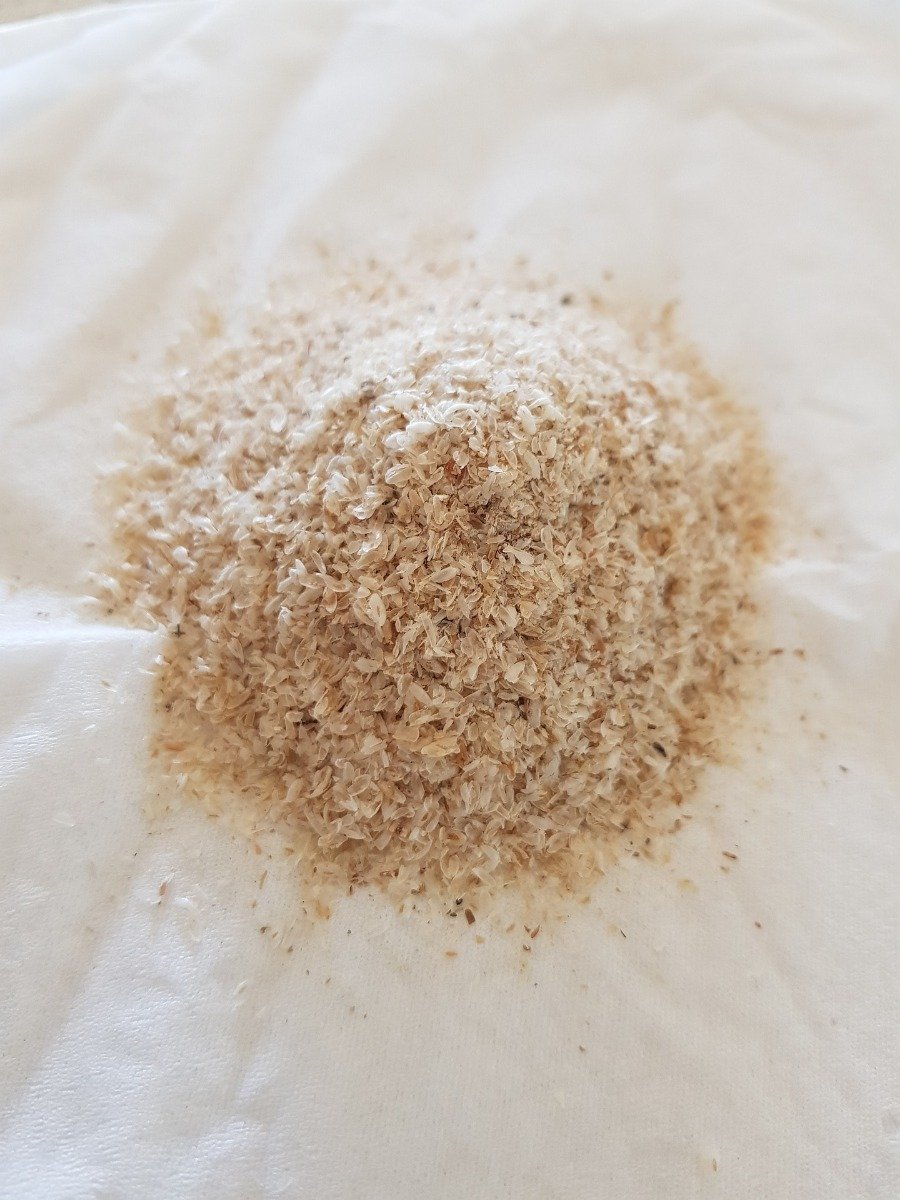Table of Contents
Fiber consumption is crucial for a person, even though the fact that our digestive system can hardly process it. It serves as food for digestion bacteria that can be found in our guts. Psyllium is a source of gluten-free fiber obtained from Fleawort, and today, you are going to find out its purpose for our health.
Psyllium – a water-soluble Fleawort fiber
Psyllium is a water-soluble fiber obtained from Fleawort (Plantago ovata) that is known as an extensive laxative. This means that it has laxative effects and it can also absorb water and therefore enlarge in size. Thanks to that it increases the volume of human stool and it’s movement in the guts. [1] [2]
Fleawort (Plantago ovata) is a plant that can grow to a maximum of 8 cm height and survives approximately 130 days. Not only it can appear in nature, but it is also cultivated in many countries, such as Spain, France, or India. [3] [4]

Psyllium is thanks to its effects on the human organism known for over centuries in traditional Chinese and Ayurved medicine in India. It is not so well-known in western civilization despite its long history, however, it was known in Europe and North America. A great advantage of growing the Fleawort is that just one plant can produce up to 15 000 seeds. [4] [5]
You might be interested in these products:
Psyllium and its health benefits
The human body cannot absorb fiber very well, although it is crucial for our health. Psyllium has many benefits that should be mentioned. It represents one option of getting fiber into the organism that is helpful for a range of health issues [13]:
- constipation
- diarrhea
- irritable bowel syndrome
- high blood pressure
- high cholesterol level in blood
- heart disease
- obesity
- metabolic syndrome
- diabetes

Psyllium and human digestion
Thanks to its ability to absorb water and improve bowel movements, is Psyllium the most helpful in the digestive system. It is used to relieve constipation, support the digestive system, and other than that, it is also prebiotic. Just like other fiber sources, Psyllium helps to grow probiotic bacteria in our organism. Healthy bowels and the correct amount of bacteria is not only beneficial for the correct consistency and movement of the stool. Bowels represent an important part of human immunity because thanks to good digestion, a body tackles infections and inflammations better. [6]
Probiotics are strains of bacteria that work in our body on the right digestion. Prebiotics are substances containing fiber, which is a “food” for the probiotic bacteria. Would you like to know more about bacteria in our digestive system? Read our article – Probiotics: the significance of useful bacteria for the immunity and overall health of sportsmen
Psyllium, in comparison with other types of fiber, is slower in fermentation which is useful because it doesn’t cause increased flatulence. Intestinal bacteria can ferment only its part and the outcome are fatty acids with a short-chain (SCFA), including butyrate. According to the mentioned research, these acids are good for your health.
Based on the study from 2017 are SCFAimportant metabolites that connect intestinal microbiota and fiber with the healthy intestinal function. They also mention that especially butyrate has a key role in maintaining intestinal homeostasis. Fiber consumption in a natural way from grains is usually connected with flatulence and more complicated digestion. The reason is its hard digestibility, however, in this case, Psyllium is better and it can be appreciated by people who don’t like to feel all gassy. [7] [8]
As one benefit, constipation relief was mentioned. This was the main issue of the study from 2019, in which scientists tried to prove whether Psyllium has effects on intestinal microbiota of healthy people and patients with constipation. According to the scientific conclusions, a very small yet important effect on intestinal microbiota was found in both groups, although the most prominent change happened with patients experiencing constipation. There was an increase of organisms connected with fatty acids production with short chains, for example Faecalibacterium. Psyllium and its effects on healthy guts are not just a part of traditional Eastern medicine. The results of the study are relevant because Psyllium and its usage is not just a part of “home” and “alternative” medicine. [9]
Psyllium and cholesterol
Hypercholesterolemia is a condition when a patient has high levels of cholesterol in the blood. There are 2 basic types of cholesterol – LDL (bad) and HDL (good). High levels of LDL are connected with fat storage that is rich in cholesterol in the artery – atherosclerosis. The outcome of fat storage in the artery is the narrowing of throughput and its possible blockage. If the coronary arteries are blocked like that, heart-attack occurs, and with arteries that supply the brain with blood, the brain attack is possible. [10]
All sources of fiber have effects on the cholesterol level, and Psyllium is no exception. By using Fleawort fiber you’re not only backing your digestion, but also the right level of cholesterol. Generally, Psyllium is able to reduce the overall cholesterol and the “bad” LDL cholesterol with people experiencing higher cholesterol levels. Besides all of that, a little decrease of the “good” HDL cholesterol was observed. [1]

The study from 2000 examined Psyllium and the effects of its long-term usage on people experiencing primary hypercholesterolemia. The participants were supposed to follow a certain diet for 8 weeks (AHA Step I diet). The subjects with cholesterol level from 3.36 to 4.91 mmol/L in serum were randomly chosen and selected into 2 groups. Their task was to consume the following 26 weeks a cellulose placebo or Psyllium 2x a day (5.1 g). The group that was using Psyllium showed a decrease of an overall concentration of the serum and LDL cholesterol in about 4.7% and 6.7%. According to scientists, Psyllium is a great supplement for the treatment of hypercholesterolemia, or possibly an alternative therapy. [11]
Psyllium and its usage for cholesterol level reduction is limited in Germany, in comparison with its application as a laxative. This is what the observative study from 2008 claims. Its goal was to find out whether the side effects on the digestion are the reason behind it. After a week of usage, the majority of participants claimed to have digestive symptoms and side effects that reduced during the 2nd and 3rd week. This means that Psyllium can be a medical option for people experiencing a mild increase in cholesterol levels. Digestive problems can be temporary with some patients. Medicine tends to have side effects and that prevents us from taking it. But if they are temporary and are effective in the treatment, perhaps it’s a good idea to give it a try and then make up your mind. [12]
Psyllium and fat-loss
Generally known, after its consumption, fiber expands in volume and therefore it’s harder to digest. Psyllium expands in the stomach and produces some kind of gel, thanks to which you will feel fuller and you won’t overeat. The direct result, therefore, can be the reduction of food consumption and following weight-loss. Most studies prove this hypothesis and mark the positive effects on weight in their results. Study from 2016 proved the increase of fullness and hunger decrease with the participants who used Psyllium for 3 days before breakfast and lunch. The amount of 6.8 represents more stable advantages of fullness than with the participant with a placebo. It’s necessary to mention that the overview from 2020 containing 22 other studies did not prove the overall effect of Psyllium on the overall weight, hips measurement, or BMI. [7] [15]

Psyllium has been a case of many studies, especially for verification of its effets on maintenance and reduction of weight. The time period of the study, the dosage and participants were different, some studies showed positive results, others claimed that Psyllium has no effect on BMI and weight. Such a conclusion was made by the study from 2016. Its main goal was to clarify the effects of the seeds from Plantago psyllium and Ocimum basilicum on the anthropometric measurements in people with non-alcoholic fatty liver. Off the record, anthropometric is a measurement taking of sizes and human body proportions. In their conclusion, they claim that the usage of Plantago psyllium, Ocimum basilicum, or their mixture for 12 weeks had no effects on their measurement results with the above-mentioned patients.
There are many examples of verification of whether Psyllium has the effects on weight-loss. The important fact is that the FDA organ (Food and Drug Administration) did not approve to use Psyllium for fat-reduction. Psyllium or other sources of fiber can be an excellent supplement during various fat-loss programs. Fiber can increase the fullness that is definitely important during this process. If you want to lose some weight, consider exercising more often, sports, and eating habits change, or just go and talk to the professional. [15] [16] [17] [18]
Is psyllium suitable for people without health issues?
Fiber is naturally found in grains, legumes, fruit, and vegetables. If you’re not sure whether you’ve had enough, you should reconsider your diet, or reach for nutrition supplements. Different forms of fiber are available on the market these days, and even Psyllium in the form of powder, granules, capsules, or seeds. Celiac people and people that are allergic to gluten will appreciate its purpose because Psyllium is naturally gluten-free. You won’t mess anything up by its consumption and you can add it into your healthy diet. [7] [13]
Would you like to know more about fiber, its advantages, and its sources? All of the necessary information can be found in the article – Fiber in foods – how much to eat and what benefits does it have to offer?

Psyllium and its side effects
The most common side effects of Psyllium is constipation, flatulency, or diarrhea, and some allergic reactions are known too. It’s important to drinks lots of water. If your constipation lasts more than 7 days and you’re experiencing stomach ache or bleeding, do not use Psyllium and go see your doctor. With allergic reactions, such as pimples, face, tongue, mouth, neck swallowing or hard breathing, seek medical help immediately. [13] [14]
Usage
Recommended daily intake varies based on the product, therefore the best thing to do is use Psyllium as recommended on the package. Do not forget about daily hydration that is very important when using Psyllium. Psyllium is not hard to digest for many people, and using 5-10 g 3x a day has rarely any side effects, even though there were some, such as flatulency and cramps. Using 5 g is recommended with 200 and more ml of water. For stool formation purposes and in terms of more acute portions, the source examine.sk claims to use a higher amount. For avoiding any side effects it’s good to follow recommended daily intake. If you’re using Psyllium for medical purposes it’s advised to talk to your doctor first. [1] [6] [7]
Psyllium is one of the options of how to get some fiber into the body and support the correct intestine function and immunity. Its consumption is important for digestion, maintenance of cholesterol levels and in some sense weight maintenance and reduction. We believe that you now know Psyllium and its effects on the human organism. Would you like to have your friends know about the fiber Psyllium? Don’t hesitate and support us by sharing our article.
[1] Kamal Patel - Psyllium – https://examine.com/supplements/psyllium/
[2] bulk-forming laxative – https://medical-dictionary.thefreedictionary.com/bulk+laxative
[3] Plantago Ovata – https://www.botanytoday.com/plantago-ovata/
[4] Bonnie L. Grant - Psyllium Plant Information – Learn About Desert Indianwheat Plants – https://www.gardeningknowhow.com/ornamental/foliage/psyllium/psyllium-plant-information.htm
[5] Psyllium – https://www.encyclopedia.com/sports-and-everyday-life/food-and-drink/food-and-cooking/psyllium
[6] Brian Krans, Kristeen Cherney - The Health Benefits of Psyllium – https://www.healthline.com/health/psyllium-health-benefits
[7] Arlene Semeco - 7 benefits of psyllium – https://www.medicalnewstoday.com/articles/318707
[8] Sathish Sivaprakasam, Puttur D. Prasad, Nagendra Singh - Benefits of Short-chain fatty acids and their receptors in inflammation and carcinogenesis – https://www.ncbi.nlm.nih.gov/pmc/articles/PMC4942363/
[9] Jonna Jalanka, Giles Major, Kathryn Murray, Gulzar Singh, Adam Nowak, Caroline Kurtz, Inmaculada Silos-Santiago, Jeffrey M. Johnston, Willem M. de Vos, Robin Spiller - The Effect of Psyllium Husk on Intestinal Microbiota in Constipated Patients and Healthy Controls – https://www.ncbi.nlm.nih.gov/pmc/articles/PMC6358997/
[10] High Cholesterol (Hypercholesterolemia) – https://www.health.harvard.edu/a_to_z/high-cholesterol-hypercholesterolemia-a-to-z
[11] J W Anderson 1, M H Davidson, L Blonde, W V Brown, W J Howard, H Ginsberg, L D Allgood, K W Weingand - Long-term Cholesterol-Lowering Effects of Psyllium as an Adjunct to Diet Therapy in the Treatment of Hypercholesterolemia – https://pubmed.ncbi.nlm.nih.gov/10837282/
[12] B Uehleke, M Ortiz, R Stange - Cholesterol Reduction Using Psyllium Husks - Do Gastrointestinal Adverse Effects Limit Compliance? Results of a Specific Observational Study – https://pubmed.ncbi.nlm.nih.gov/18222665/
[13] Cathy Wong - The Health Benefits of Psyllium – https://www.verywellhealth.com/the-benefits-of-psyllium-89068
[14] Cerner Multum - Psyllium – https://www.drugs.com/mtm/psyllium.html
[15] Cathy Wong - Can Psyllium Husk Help With Weight Loss? – https://www.verywellfit.com/psyllium-for-weight-loss-89128
[16] Ana Aleksic - Psyllium Husk: What is it Used For? + Side Effects – https://selfhacked.com/blog/psyllium-husk/
[17] Shahab-Aldin Akbarian, Sedigheh Asgary, Awat Feizi, Bijan Iraj, Gholamreza Askari - Comparative Study on the Effect of Plantago psyllium and Ocimum basilicum Seeds on Anthropometric Measures in Nonalcoholic Fatty Liver Patients – https://pubmed.ncbi.nlm.nih.gov/27761216/
[18] Anthropometry – https://www.dictionary.com/browse/anthropometry


Add a comment